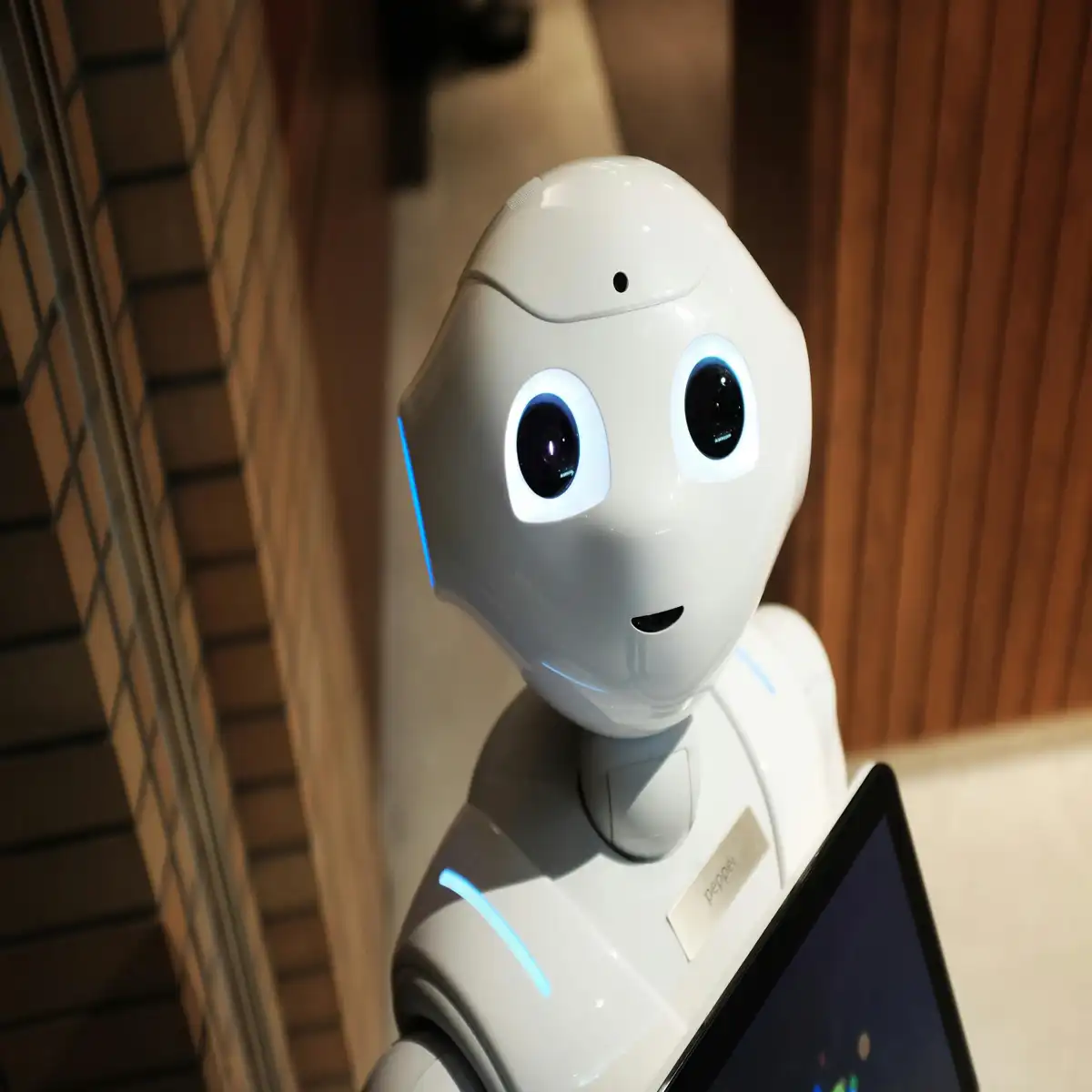What jobs are AI taking over: How AI will change jobs
As a follow-up to my previous article Is your Job threatened? Nobody knows where AI will leave us, I have been trying to imagine how AI will change jobs when this amazing tech finally becomes commonplace(Artificial Superintelligence-ASI– is predicted to be already here).
And I have made a few predictions- from my own research, and helped a bit by AI(because, why not?)
In short, I have tried to imagine the HR, accountant, marketer, lawyer, scientist, software engineer, caterer, teacher, caregiver… of the future.
Oh, and even the entrepreneur of 2040..or 2050…0r 2070…nobody is sure when this great tech will be 100% mainstream.
So, below is my hypothesis about:
- How different jobs will look like after 5 years (of AI)
- How your job will look like after 10 years (of AI)
- How your job will have changed after 15 years (of AI taking over)
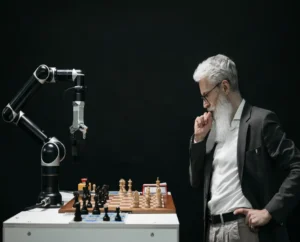
What jobs are AI taking over: How AI will change jobs
So below is exactly how ai will change jobs (including that job you are currently very proud of) very soon..
HR
AI will likely take over some traditional HR roles starting from interviewing and appraisals –automated AI appraisals do a better job and more efficiently thank humans.
That said, AI won’t be able to , for example, motivate staff as well as you can do. So, as a HR professional, you will probably transition to roles such as:
- Talent management specialist
- Motivation and awareness professional
But you must be AI fluent since you will still be prompting your AI HR apps to do the basics such as shortlisting and interviewing.
Medics, Nurses, and other healthcare professionals
The world population is aging faster (and people are living longer) particularly in high- and middle-income countries so the demand for healthcare is going to rise.
Therefore, you are in luck if you’re in these careers:
- Nursing
- Social work
- Counselling
- Personal care
What you, however, need to understand is that medical professionals like radiographers must upskill urgently otherwise AI tech will see them displaced by their peers who can use AI more competently.
This is because now AI can read medical scans and issue you with a comprehensive report- duties that have been for long reserved to radiologists.
Meanwhile, while doctors and surgeons will be needed, AI will get deep into their operations and it could soon be accurately recommending medication once you give it symptoms- so they must become AI savvy.

Engineers
We shall have a plethora of new roles including:
- AI-Integrated Systems Engineer- Designs and manages systems where traditional engineering components interact with AI modules (e.g., smart infrastructure, autonomous vehicles).
- Cognitive Systems Engineer– Focuses on how humans and AI work together. Designs systems with human-AI collaboration at the core (especially in safety-critical fields like aviation or medicine).
- Human-Centered AI Engineer- Ensures AI-enhanced engineering solutions are ethical, explainable, and usable by humans.
- Augmented Intelligence Engineer- Specializes in developing tools and systems that amplify human intelligence rather than replace it.
- AI Reliability Engineer- Focuses on testing, monitoring, and improving the reliability, safety, and bias-resistance of AI-driven systems.
- Autonomous Systems Engineer- Engineers who build and maintain self-governing machines—drones, self-driving cars, industrial robotics—with embedded AI.
- Generative Design Engineer- Uses AI to co-create optimal product designs based on constraints, materials, and goals. Already emerging in aerospace and manufacturing.
- Neural Interface Engineer- Works on connecting human brains directly to machines—an area that blends biomedical engineering, AI, and neuroscience.
- Ethical Engineering Architect- Engineers who bridge tech and philosophy to ensure future systems comply with human values, legal norms, and global safety standards.
- AI-First Infrastructure Engineer- Designs digital and physical infrastructures with AI embedded as a native component—not added afterward.
Further predictions:
- Mechanical engineers must learn predictive analytics.
- Electrical engineers will be expected to work with AI embedded in IoT devices.
- Civil engineers – if you’re one- will be using AI for traffic and structural simulations.
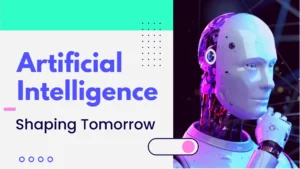
Mechanics
We are coming into electric vehicles and autonomous vehicles age.
It therefore follows that electric & autonomous vehicle specialists will be the new mechanics/auto repair techies.
Yes- you must change into an EV Technician or vehicle systems technician (Or even smart diagnostics expert) otherwise it’s bye bye you.
Sure, tasks needing human skills such as tyre change, suspensions repair, and such will remain but competition will be stiff!.
Education professionals (teachers, trainers, professors)
Your future is not what you think- you have to transition to:
- Learning architect- If you’re a trainer, I’m seeing you evolving to designing and running AI-powered learning ecosystems(AI tutors taking trainees through personalized upskilling paths)
- Designer (of Learning Experience)- as a professor, you’ll be coming up with the correct learning path and Lead project-based, collaborative learning.
- Mentoring– human mentors are going to be in high demand (AI can’t mentor fully). Think of it this way: Future teacher/trainer = human coach!
Why?
Right now, your core duty is to produce content- as per syllabus/curriculum- and deliver it in a classroom/lecture hall.
But AI can do that (AI can teach all facts, generate questions/tests, or make summaries) better than you so unless you upskill to facilitation and mentorship, I’m afraid there’ll be no work for you anymore.
Meanwhile, there might be some new teaching related roles coming into the picture due to emergence of AI including Learning Personalization Specialists(they will be helping ai create a custom learning pathway for learners based on their talents).
Bottomline?
The teachers of the future won’t be sent home by AI—but certainly by fellow humans who understands how to use Artificial Intelligence best.

Finance professionals, Administrative staff, Clerical Workers, Bank Tellers
Sadly, for the simple reason that AI is better at crunching numbers, analytics, and reporting, accountants, book-keeper, finance managers, payroll clerks, bank tellers, and related careers will soon go away.
You also need to worry if you are a cashier or an administrative official (administrative assistant, executive secretary, administrator) as majority of your daily tasks are already getting automated(they’re repetitive and computer based).
Similarly, post office clerks, data entry clerks, ticketing clerks- and essentially all clerical manpower- need to upskill and prepare for a career change very fast.
Legal/paralegals
If you are a paralegal, legal researcher, legal examiner, or legal clerk, you may soon be out of work!
And I’m sure by now you can guess the reason….it’s because AI can do things faster and better than you as long there’s a good brain guiding it (so you won’t be ten or twenty assistants- perhaps only one of you and a good AI for legal research app).
Meaning?
You have to evolve…but to what? Well, AI is creating a lot of new, never-heard of jobs so you have choices.
How AI will change jobs – Other jobs AI is taking over
I didn’t want to make this article so long so below is a summary of other jobs AI has already taken over or is quickly coming for to trigger you to think about re-skilling or up-skilling to secure your future:
- Door to door sales workers– AI digital marketers will be in vogue
- News and street vendors– AI tools for news are getting better every day
- Graphic designers– only few will remain (high level experts)
- Claim adjusters, claim examiners, claim investigators– AI doing these tasks better
- Telemarketers– AI agents replacing you
- Auditors– replaced by AI assisted systems auditor
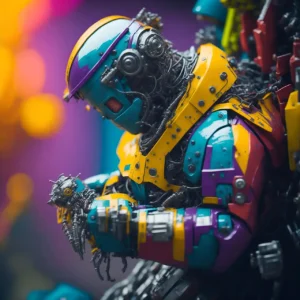
Jobs resistant to AI take over (as of now)
According to the WEF’s future of jobs report(2025), you are completely safe (at the moment) if you’re a:
- Farm worker
- Delivery driver
- Construction worker (robots are not yet smart enough)
- Salesperson (as long as you have AI digital marketing skills)
- Food processing worker
- Nurse
- Social worker
- Counsellor
- Personal care aide
- Tertiary, secondary school teacher, ECDE Teacher
- Environmental engineer(carbon emission expert)
- Renewable/Green energy engineer
Jobs AI has created/is Creating
And, of course, there are jobs AI is creating/has created directly or it has caused the creation thereof (as it needs facilities such as hardware to continue advancing).
Here are some:
- AI & Machine learning technician/specialist
- AI Systems UX/UI designers
- AI developers /engineers
- AI product designers
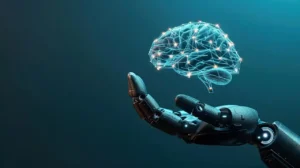
Tech-related jobs that are safe
If you are in tech, these roles are considered safe (again, as at now):
- Big data specialist
- Fintech engineer
- Software/app developer (there’s no consensus on whether AI replace software engineers)
- Security management specialist
- Information security pro (cyber security professional)
- Data warehousing specialist
- IOT specialist
- Data analyst/scientist
- Block chain developer
What skills will be most in-demand once AI takes over everything?
I’m seeing a future where skills that AI can’t have will be the most valuable in the market ..
Think:
- Empathy
- Critical thinking
- Emotional intelligence
- Humor, storytelling, and even inspiration especially for professionals such as teaching—since AI can’t do them as well as we humans can.
- Curiosity, Lifelong learning
- Resource mobilization – tech can’t do this
These are the skills therefore that children should be learning….maybe from primary school..
Frequent asked questions (FAQs)
How many jobs will ai replace by 2030?
According to varied predictions including by the WEF, AI will replace about 14 Millions jobs by 2030 but create about 16 million new jobs.
What jobs will ai replace by 2030?
Mostly, at the moment, AI is replacing white collar jobs that are mainly repetitive by nature…and that are done using a computer.
So jobs such as administrative assistants, clerks, legal assistants, writers, graphic designers, and the like are the one expected to go first.
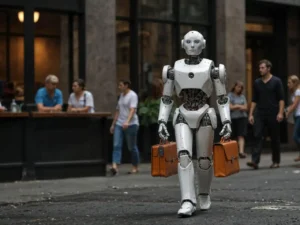
How AI will change jobs- Conclusion
Anyway, I have even predicted that just as we have systems to test core skills including language skills (think of TOEFL for English language), we shall have someone developing a universal system that tests AI Literacy skills as part of prequalification conditions for various roles!
In other words, you should not worry about how many jobs has AI replaced …instead, you need to upskill to safeguard your present job..
Remember: You cannot stop an innovation whose time has come…so, forget about AI not affecting your job. It’s coming for it. Very fast. And you need to do something about it. To remain relevant.
